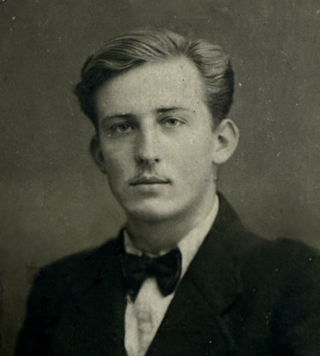DDDr. Karl Wilhelm Viktor Rössel-Majdan

Personalia
Born:
Died:
Profession:
Memberships
Curriculum Vitae
Karl Wilhelm Viktor Rössel-Majdan was born in Vienna as the legitimate son of the opera singer, music teacher and committed anthroposophist Professor Karl Rössel(-Majdan) and his wife Margarete, née Soldan. His early childhood years were characterized by malnutrition and severe fevers. His father served as a major in the k.u.k. He is awarded the Order of Maria Theresa for his special services in the battles for Majdan, where he prevents the breakthrough on the Eastern Front, and is allowed to add the designation Majdan to his name ever since. Karl Rössel-Majdan's younger brother Viktor Rössel-Majdan was born in 1919.
After elementary school, Karl Rössel-Majdan attended the Akademisches Gymnasium in Vienna and the St. Paul Stiftsgymnasium in Carinthia. After passing his A-levels in 1935, he enrolled in law at the University of Vienna. He was a staunch Austrian and a strict opponent of National Socialism.
Along with Jacob Kastelic and others, he co-founded the Großösterreichische Freiheitsbewegung almost at the same time. The first decisive meeting took place in November 1938 at Café Wunderer on the Hietzinger Brücke
.
In 1939, Karl Rössel-Majdan received his doctorate in law and was subsequently drafted into the Wehrmacht and, after being wounded, was sent to a military hospital, where he continuously gathered information about troop movements for the resistance movement. In 1940, he managed to make contact with the "Austrian Freedom Movement" around Karl Lederer and the group around the Augustinian canon Roman Karl Scholz.
From July 1940, a good 300 people from these resistance groups were betrayed by the castle actor Otto Hartmann (Otto Hartmann was subsequently sentenced to life imprisonment in 1947 and pardoned in 1957) and Karl Rössel-Majdan was arrested on October 22, 1940. He was taken to the Gestapo at the Hotel Metropol, the Hartmuthgasse military prison, the Vienna provincial court and the Stadelheim prison. On June 29, 1944, he was sentenced to 10 years in prison for 'preparation for high treason'. He was then sent to the Lobau prison camp. There he managed to escape on March 10, 1938. By April 9, 1945, he had managed to go into hiding as a submarine with Rudolf Zetsche at Koppstraße 58 in Vienna's 16th district. He receives food from his father, which comes from his pupil Hilde Figl. When the battle for Vienna begins, he leaves his hiding place and joins the fighting force around Karl Szokoll on April 9, 1945.
As a resistance fighter, Karl Rössel-Majdan experiences the liberation of Austria and the re-establishment of the Republic in April and May 1945. In 1945, he married Hilde Figl, who would later become an opera singer, and subsequently became the father of a daughter.
He worked with Julius Breitenstein and his father to reestablish the Anthroposophical Society in Austria, which had dissolved itself in 1938 after the occupation of Austria in order to avoid the threat of a ban. From 1946, Karl Rössel-Majdan worked at the radio station that would later become the ORF, which was still under the control of the occupying powers at the time. Karl Rössel-Majdan initially worked at the radio station as a scientific consultant and in the personnel department, later becoming head of the radio research department and head of the foreign shortwave service. As a radio researcher, he developed a new form of listener statistics based on the ideas of Rudolf Steiner's Threefold Social Order. Study trips later took him to Israel and in 1953 to the United States of America, where he studied Native American life in particular.
In 1948, Karl Rössel-Majdan and his wife traveled to Switzerland by motorcycle, where he visited Marie Steiner shortly before her death. In 1949, he obtained a doctorate in philosophy and in 1952 a doctorate in political science. From 1961, he was also active in adult education. He gave lectures on cultural history and further developed the language design founded by Rudolf Steiner in an independent form. He is regarded as a committed trade unionist and from 1970 to 1986 was chairman of the Arts, Media and Liberal Professions Trade Union in the Austrian Trade Union Federation (ÖGB), as well as Secretary General of the Working Group for Art and Science in Austria and Vice President of the Austrian Artists' Union. At the suggestion of his daughter Elisabeth, Karl Rössel-Majdan founded the Comenius Institute in 1972, where people in need of spiritual care have been cared for according to Waldorf educational methods ever since.
In 1967, Karl Rössel-Majdan founded the Board of Trustees for Artistic and Healing Education, which he actively led as President until his death. His daughter Elisabeth Rössel-Majdan then took over the management of the Board of Trustees. The Board of Trustees is the joint legal entity of a number of private Waldorf educational institutions as the basis for a free spiritual life. Karl Rössel-Majdan's initiative led to the creation of:
- Comenius Institute (1972)
- Comenius Home (1980)
- Friedrich Eymann Waldorf School (1982)
- Goetheanist Conservatory and Waldorf Pedagogical Academy (1989)
- Rudolf Steiner Secondary School (1992)
Karl Rössel-Majdan died in Vienna at the age of 83 and was laid to rest in Vienna's Central Cemetery.
Places
Residence:
Citations
Wiener Stadt- und Landesarchiv (WStLA)
Dokumentationsarchiv des österreichischen Widerstands (DÖW)
AntroWIKI unter www.anthrowiki.at/Karl_Rössel-Majdan
Wikipedia unter www.de.wikipedia.org/wiki/Karl_Rössel-Majdan
